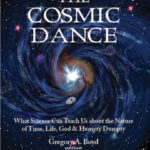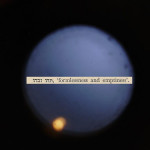We run our website the way we wished the whole internet worked: we provide high quality original content with no ads. We are funded solely by your direct support. Please consider supporting this project.
Revelation 13:8 refers to “everyone whose names have not been written before the foundation of the world in the book of life.” How does that square with open theism?
Three possibilities exist in terms of reconciling Revelation 13:8 with open theism.
1) First, the “from the foundation of the world” clause can attach to either “everyone whose names have not been written” or to “the lamb that was slain.” For example, the TNIV translates this passage “All inhabitants of the earth will worship the beast—all whose names have not been written in the Lamb’s book of life, the Lamb who was slain from the creation of the world. ” So it is with many translations of this passage. If this is correct, the passage suggests that the crucifixion of Christ was part of Gods’ plan from the beginning, but not that people’s names were or were not written in “the book of life” from the foundation of the world.
2) The phrase “from the foundation” (apo kataboleis) can mean “from before” or “from the time of” (=since). So even if we attach the phrase to “everyone whose name has not been written…” the passage need only refer to those who didn’t enter into eternal life from the beginning of the world – that is, throughout history. As history progresses, God (metaphorically of course) puts into his “book of life” all people who enter into a life-giving relationship with him.
3) Several times in Scripture God warns people that he may blot their names out of the book of life (Exod. 32:33; Rev. 3:5, cf. Rev. 22:18). In this light, it seems we should not think that having one’s name in or out of “the book of life” is a permanent thing. On a side note, if names were written (or not written?) in the book of life before the world began, and if one can’t add or detract from this book, one might legitimately wonder what these passages mean.
Applied to the foreknowledge debate, if God foreknew from all eternity that certain names would be “blotted out” of his book, one has to wonder why God bothered to put them there in the first place? If God may indeed “take away [a]… person’s share in the tree of life and in the holy city” (Rev. 22:19), and God knew this would happen, why did he give them a share in the first place? If names can be added and/or deleted from the book of life, it suggests that the eternal destiny of these people was not fixed in God’s mind (=in “the book”) from the start .
Category: Q&A
Tags: Bible, Free Will, New Testament, Open Theism, Predestination, Q&A, Responding to Calvinism, Revelation
Topics: End Times, Providence, Predestination and Free Will, Responding to Objections
Verse: Revelation 13
Related Reading

Podcast: Did Revelation Evolve or did God Evolve?
Greg discusses the revolution of God. http://traffic.libsyn.com/askgregboyd/Episode_0387.mp3

How do you respond to Ephesians 1:4-5?
Question: Ephesians 1 refers to believers as predestined before the foundation of the world. How do you reconcile this with your view that free actions of people (like choosing to believe in Christ) can’t be predestined or even foreknown ahead of time? Answer: It took three hundred years before anyone in Church history interpreted the…

When God Endorsed Polygamy
We often find God acting as if he supports things we know, by other means, that he does not. For example, though his ideal was monogamy, it’s clear in the biblical narrative that, once God decided to permit men to acquire multiple wives and concubines, he was not above bearing the sin of his people…

Roger Olson’s Review of The Cosmic Dance
Today we wanted to share a review of The Cosmic Dance by esteemed theologian Roger Olson. You can check out an excerpt below or you can read the whole review here. You can place an order for The Cosmic Dance here. The Cosmic Dance is Greg’s (and friends’) attempt to present the case that the best contemporary science supports viewing…

Why have you consistently stressed the need for the Western Church to learn from the African Church?
Question: I’ve heard you argue that the white Western church has a lot to learn theologically from African cultures. What is it specifically that you’re referring to? Response: I do strongly believe that the western church needs to humbly sit at the feet of our fellow Christians in Africa. My conviction is based on four…

Pre-Modern Readings of Genesis 1
Biologos posted a three part reflection on Pre-Modern readings of Genesis 1 that are worth a closer look. And no matter what your particular way of reading this portion of Scripture, let’s pay attention to what edifies the Church and whether our reading contributes to that. From Part I of the series: Key theologians of…
